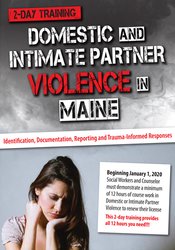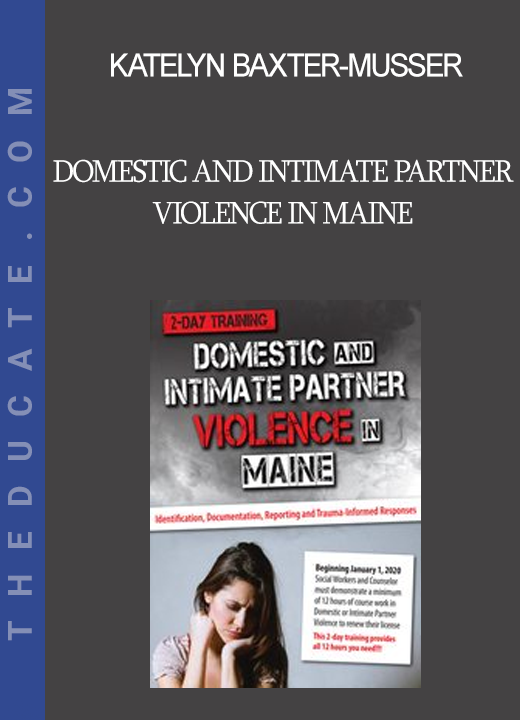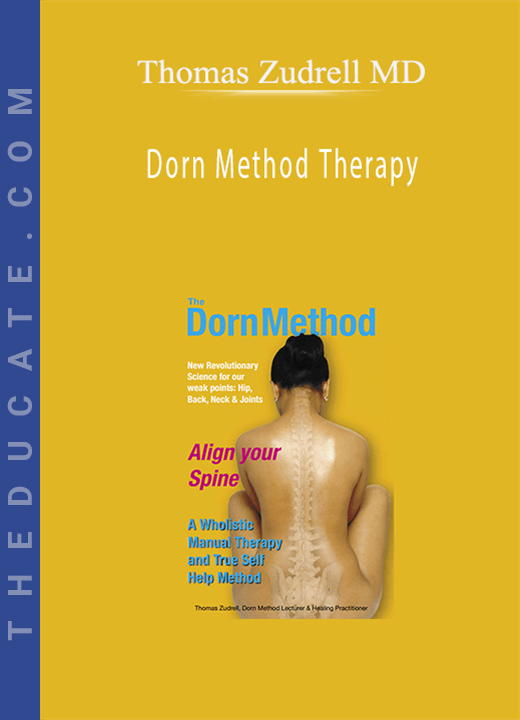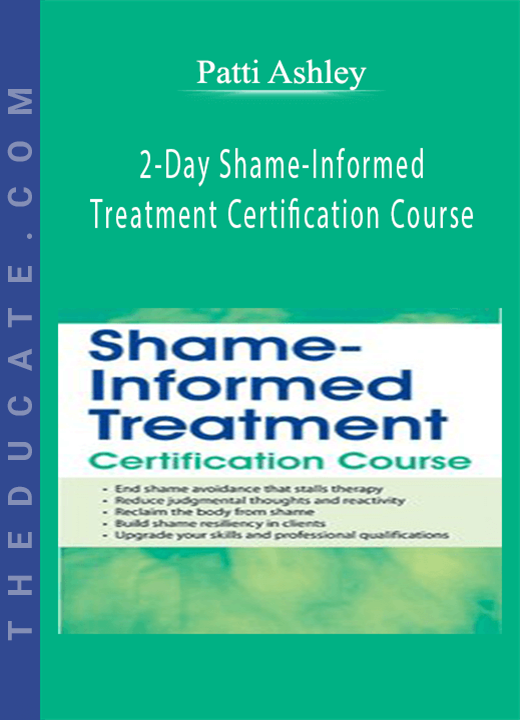Description

-
Katelyn Baxter-Musser – Domestic and Intimate Partner Violence in Maine: Identification, Documentation, Reporting and Trauma-Informed Responses
- Faculty:
- Katelyn Baxter-Musser
- Duration:
- 12 Hours 1 Minutes
- Format:
- Audio and Video
- Copyright:
- Sep 19, 2019
Description
Regardless of your area of focus, you’re likely to encounter Domestic and Intimate Partner Violence at some point in your practice.
But abuse can be difficult to detect after the physical signs of violence have faded. What defines abuse and how does one properly assess for it? And when it’s brought into the light, domestic violence can raise professional dilemmas that leave you caught between responsibilities surrounding confidentiality, autonomy, and your wider responsibilities to protect victims.
It’s a complicated situation that can leave you unsure of how to proceed and troubled knowing that failure to recognize and properly respond to domestic violence can have dire consequences.
Starting on January 1st, 2020 social workers and counselors in Maine are required to have completed 12 CE hours of training in domestic or intimate partner violence for renewal of their license or initial licensure.
This recording is your chance to complete all 12 required hours and get the tools and guidance you need to recognize the red flags of domestic and intimate partner violence, properly report and document abuse, and effectively respond and intervene in a trauma-sensitive manner.
Whether you’re a social worker, counselor, psychologist, marriage and family therapist, nurse, or anyone in the helping professions, this program will serve as an indispensable guide for how you can improve outcomes for those impacted by domestic and intimate partner violence.
Handouts
| Manual 2-Day: Domestic and Intimate Partner Violence in Maine (18.23 MB) | 147 Pages | Available after Purchase |
| Extra Handout (33.24 MB) | 98 Pages | Available after Purchase |
Outline
Victims, Perpetrators and Dynamics of Domestic and Intimate Partner Violence
- Myths about domestic and intimate partner violence
- Types of domestic violence
- Dynamics of power, manipulation and control
- Characteristics of perpetrators
- Substance abuse and violence
- Same gender abuse dynamics
Recognize the Red Flags of Violence: What All Clinicians Need to Know
- Screening and assessment techniques
- Identify immediate danger
- Injuries and other indicators
- Tools to assess for safety, risk and lethality
- Checklists and advocacy resources
- Technology and domestic/intimate partner violence
Non-Physical Abuse and Psychological Violence
- Who’s at risk?
- Warning signs and symptoms
- Emotional manipulation
- Yelling and intimidation
- Inappropriate sexual pressure
Reporting Requirements and Documentation Guidelines
- Privacy and confidentiality
- Who is required to report and when?
- Standards for making a report
- Domestic violence contacts and hotlines
- Proper documentation and confidentiality strategies
- When and how to refer to agencies
- Community resources
- Liability issues for failing to report
Crisis Intervention, Safety Plans and Available Services
- Safety plans while living with abusive partners
- Safety planning for children
- Emotional safety planning
- Barriers to leaving
- Plans for leaving and after leaving
- Restraining orders/protective orders
Culturally Competent Responses to Abuse
- Recognizing your own biases
- How survivors interpret domestic violence in their culture
- Adapting danger assessments for underserved populations
- Working with LGBTQ survivors
Trauma Informed Interventions: Transition Clients from Surviving to Thriving
- Assess for PTSD, anxiety, trauma and other mental health issues
- Understand the multilayered impact of DV/IPV
- Processing shame, anger and guilt
- Working with children exposed to domestic violence
- Relaxation skills and guided imagery for anxiety
Faculty
Katelyn Baxter-Musser, LCSW, CDBT Related seminars and products: 3
Katelyn Baxter-Musser, LCSW, CDBT, is a Licensed Clinical Social Worker in private practice in Maine where her areas of expertise include domestic violence, abuse, trauma, PTSD, depression, anxiety, grief and relationship issues.
Her clinical experience includes working for 10 years in various roles as a case manager, child and family therapist, and trauma therapist for several agencies and Native American reservations. Ms. Baxter-Musser served as the trauma healing services clinical coordinator for La Frontera Arizona, a non-profit organization dedicated to providing behavioral health counseling, crisis intervention and support to families and individuals facing domestic violence, abuse, hate crimes and other issues.
Ms. Baxter-Musser is trained in Dialectical Behavioral Therapy, Cognitive Behavioral Therapy and is a Certified EMDR therapist. She is a member of the National Association of Social Workers, the American Academy of Experts in Traumatic Stress, the National Center for Crisis Management and the Maine Collaborative Law Alliance. She sits on the EMDRIA Standards and Training Committee and is the regional coordinator for the EMDRIA Southern Maine Regional Network.
Speaker Disclosures:
Financial: Katelyn Baxter-Musser maintains a private practice. She receives a speaking honorarium from PESI, Inc.
Non-financial: Katelyn Baxter-Musser is a member of the National Association of Social Workers.






Reviews
There are no reviews yet.